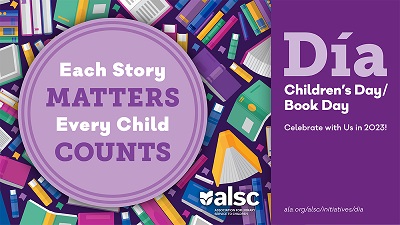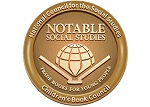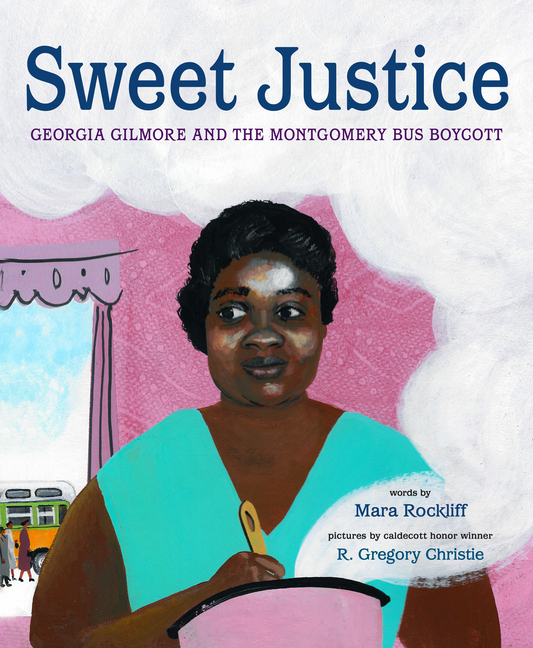
Book Resume
for Sweet Justice: Georgia Gilmore and the Montgomery Bus Boycott by Mara Rockliff and R. Gregory Christie
Professional book information and credentials for Sweet Justice.
6 Professional Reviews (2 Starred)
6 Book Awards
Selected for 3 State/Province Lists
See full Book Resume
on TeachingBooks
- School Library Journal:
- Grades 1 - 4
- Kirkus:
- Ages 5 - 9
- Publisher's Weekly:
- Ages 4 - 8
- Booklist:
- Pre-K - Grade 3
- TeachingBooks:*
- Grades PK-2
- Lexile Level:
- 840L
- Cultural Experience:
- African American
- Genre:
- Biography
- Nonfiction
- Picture Book
- Year Published:
- 2022
5 Subject Headings
The following 5 subject headings were determined by the U.S. Library of Congress and the Book Industry Study Group (BISAC) to reveal themes from the content of this book (Sweet Justice).
- Montgomery Bus Boycott, Montgomery, Ala., 1955-1956--Juvenile literature
- Gilmore, Georgia, 1920-1990--Juvenile literature
- African American women civil rights workers--Alabama--Montgomery--Biography--Juvenile literature
- African American civil rights workers--Alabama--Montgomery--Biography--Juvenile literature
- Civil rights workers--Alabama--Montgomery--Biography--Juvenile literature
6 Full Professional Reviews (2 Starred)
The following unabridged reviews are made available under license from their respective rights holders and publishers. Reviews may be used for educational purposes consistent with the fair use doctrine in your jurisdiction, and may not be reproduced or repurposed without permission from the rights holders.
Note: This section may include reviews for related titles (e.g., same author, series, or related edition).
From School Library Journal
Starred review from January 28, 2022
Gr 1-4-Rosa Parks and Martin Luther King Jr. are familiar names in the fight for justice and equality, but unsung heroes such as Georgia Gilmore contributed to the famous Montgomery Bus Boycott, too. In fact, Gilmore had been boycotting the bus herself before Parks was arrested. For over a year, she helped support the boycott by making and selling her delicious food, then using the proceeds to pay for transportation and fines for those who were arrested unjustly. When Gilmore spoke out in court, she was fired from her job, but King encouraged her to work for herself, making food at her house. Gouache illustrations are full of life and expression; think Gordon C. James's paintings for Derrick Barnes's Crown. Gilmore is a big Black woman, often wearing bright colors, with a missing front tooth. Substantial back matter includes "After the Boycott" and resources. VERDICT Offering an outstanding take on the Montgomery Bus Boycott from a fresh perspective, this is an essential purchase.-Jenny Arch
Copyright 2022 School Library Journal, LLC Used with permission.
From Horn Book
January 1, 2022
Rockliff and Christie focus their story of the Montgomery Bus Boycott on a little-heralded -- yet integral -- member of the movement, culinary whiz Georgia Gilmore (1920-1990). Once the boycott began, Gilmore and her "Club from Nowhere" (so dubbed to help members avoid retaliatory action) sold baked goods and donated their earnings to the cause. Although Gilmore did, in fact, lose her job after testifying at Dr. King's trial following his arrest for organizing the boycott, she was able to succeed when he encouraged her to start her own catering business. Gilmore's home became a place for members of the movement to gather not just to eat good food but to hash out matters relevant to the boycott. Rockliff repeats certain phrases to great effect ("Summer heated up...The boycotters trudged on. Fall passed...The boycotters plodded on") and nods to Gilmore's mouthwatering menu offerings ("The empty buses made city officials hotter than Georgia's collard greens with pepper sauce"). Christie's vivid, painterly illustrations bring the 1950s setting to life and show Gilmore's importance to the cause; she is pictured in nearly every spread, cooking, baking, bringing money to a boycott strategy meeting, and more. Appended with an "After the Boycott" page, which focuses on Gilmore's later life; an author's note on sources; and a source list. Pair with Romito and Freeman's Pies from Nowhere (rev. 11/18). Sam Bloom
(Copyright 2022 by The Horn Book, Incorporated, Boston. All rights reserved.)
From Kirkus
December 15, 2021
Georgia Gilmore was just an ordinary person when she fed and funded the Montgomery Bus Boycott. "Georgia was cooking when she heard the news," the story begins. The year is 1955, and civil rights activist Rosa Parks has just been arrested for refusing to give up her seat to a White man on a bus. Gilmore had spent her entire life in Montgomery, Alabama, and was no stranger to segregation. Having had her own brush with a racist bus driver, she knew the pain of being treated unjustly. Georgia springs into action, joining her neighbors as they march through the streets in mass protest against the Montgomery bus system. Georgia begins selling pastries and dinners, including her famous crispy chicken sandwiches, keeping the people fed during Dr. Martin Luther King's church meetings. She then organizes a secret group of friends, dubbed the Club From Nowhere, to help her continue the venture. They use the money they make to support the boycott, which ultimately ends when a Supreme Court ruling makes segregation on public buses unconstitutional. Despite the hardships she experienced, Georgia persevered, eventually opening her own restaurant, which became a hub for Black community organizing. Christie's vivid acrylic paintings propel the narrative with a fine balance of pathos and power. The straightforward text uses food as an extended metaphor to underscore Georgia's tenacity and African American people's hunger for equality and justice. Young readers will find much food for thought in this inspiring profile of a lesser-known civil rights leader. (notes, author's note, sources) (Picture book biography. 5-9)
COPYRIGHT(2021) Kirkus Reviews, ALL RIGHTS RESERVED.
From Publisher's Weekly
November 29, 2021
This mouthwatering motivational picture book centers Georgia Gilmore (1920—1990), a Black cook in Montgomery, Ala., who raised money through food sales to help support transport costs and cover fines for those participating in the Montgomery bus boycott. Rockliff relays the narrative in a smooth, easy-to-read style: "And if they couldn't find a seatâ€"well, even standing up, they found the spare ribs and the stuffed bell peppers tasted just as good." Caldecott Honoree Christie offers realistic portraits of figures, including Martin Luther King Jr. and Gilmore herself, rendered in saturated gouache hues. This food-related profile ("A boycott! Something was cooking in Montgomery, and not just Georgia's black-eyed peas") succeeds in spotlighting a force who helped fuel the civil rights movement. Back matter includes more about Gilmore, an author's note, and sources. Ages 4—8.
From Booklist
Starred review from November 1, 2021
Preschool-Grade 3 *Starred Review* After Rosa Parks' arrest on a Montgomery, Alabama, bus, local women organized minister Dr. Martin Luther King Jr.'s bus boycott, and many others in the Black community stepped up to do what they could. To raise money for ride-sharing and other expenses, a cook named Georgia Gilmore made and sold sandwiches, cakes, and pies, and she encouraged others to help as well. All the proceeds supported the cause. After Dr. King was arrested for inciting a boycott without "just cause," she testified in court about the bus system's discriminatory practices. As a result, she lost her job, but that didn't deter her from her mission. Dr. King gave her money for pots and pans, enabling her to cook for many in her home, supporting herself and the boycott. Rockliff weaves many references to Gilmore's cooking into the narrative of significant events taking place in her community. The author's note points to her place in history as one of many "courageous and persistent individuals" who made up the era's civil rights movement. Christie's richly colorful, expressive gouache paintings bring the bus boycott into focus while depicting Gilmore as the text portrays her: a down-to-earth hero who used her considerable talent, energy, and courage to work for justice.
COPYRIGHT(2021) Booklist, ALL RIGHTS RESERVED.
From AudioFile Magazine
With even pacing and crystal-clear diction, narrator Rosa Howard embodies the charisma and conviction of one woman who stepped up to do what she could during the Montgomery bus boycott of 1955-56. When Rosa Parks was arrested for refusing to give up her seat on a bus to a white man, Georgia Gilmore joined her community in boycotting the city buses. Georgia then used her talents as a cook to make and sell sandwiches, cakes, and pies, donating the proceeds for ride-sharing and other expenses the boycotters faced. Howard's voice, rich and warm, strong but relatable, conveys the big heart of an ordinary woman who answered the call to help her community fight injustice. S.C. © AudioFile 2022, Portland, Maine
6 Book Awards & Distinctions
Sweet Justice was recognized by committees of professional librarians and educators for the following book awards and distinctions.
 El día de los niños / El día de los libros, 2013-2024, Selection, 2024
El día de los niños / El día de los libros, 2013-2024, Selection, 2024
 ALSC Notable Children's Books, 1995-2024, Commended, 2023
ALSC Notable Children's Books, 1995-2024, Commended, 2023
 Notable Social Studies Trade Books for Young People, 2015-2024, Biography Selection, 2023
Notable Social Studies Trade Books for Young People, 2015-2024, Biography Selection, 2023
 Robert F. Sibert Informational Book Medal, 2001-2024, Honor, 2023
Robert F. Sibert Informational Book Medal, 2001-2024, Honor, 2023
 Center for the Study of Multicultural Children's Literature Best Books, 2013-2024, Selection, 2022
Center for the Study of Multicultural Children's Literature Best Books, 2013-2024, Selection, 2022
 Junior Library Guild Selections, 2012-2024, Nonfiction Selection, 2022
Junior Library Guild Selections, 2012-2024, Nonfiction Selection, 2022
3 Selections for State & Provincial Recommended Reading Lists
Sweet Justice was selected by educational and library professionals to be included on the following state/provincial reading lists.
United States Lists (3)
Preview Digital Book
Explore Sweet Justice on Marketplace. Access requires OverDrive Marketplace login.
This Book Resume for Sweet Justice is compiled from TeachingBooks, a library of professional resources about children's and young adult books. This page may be shared for educational purposes and must include copyright information. Reviews are made available under license from their respective rights holders and publishers.
*Grade levels are determined by certified librarians utilizing editorial reviews and additional materials. Relevant age ranges vary depending on the learner, the setting, and the intended purpose of a book.
Retrieved from TeachingBooks on January 19, 2025. © 2001-2025 TeachingBooks.net, LLC. All rights reserved by rights holders.


